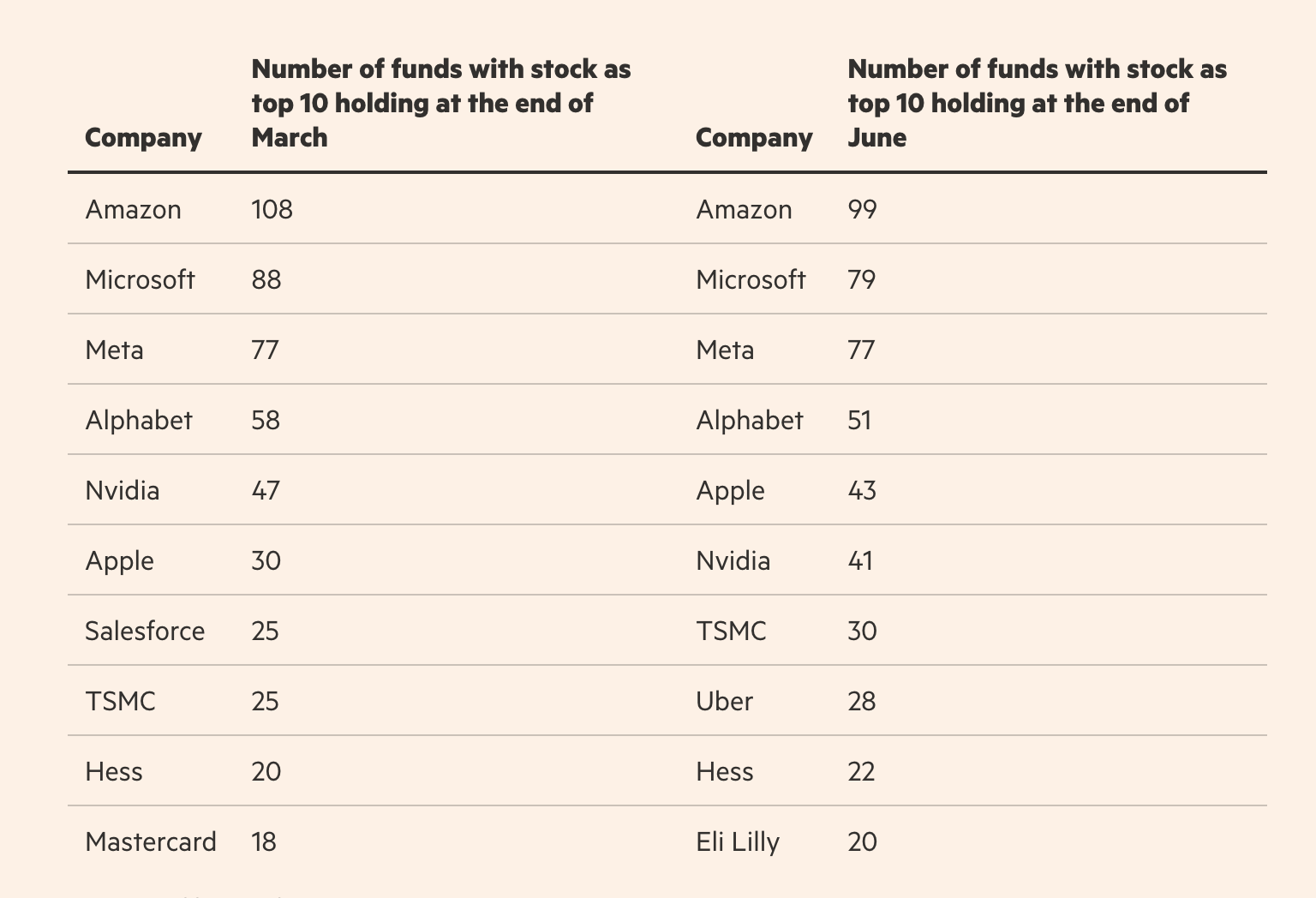Hedge Funds Uncoupling from the Mag7
Hedge fund crowding has reached significant levels over the past year, but many major players are now starting to reduce their exposure to the “Magnificent Seven” tech stocks that have fuelled the recent market rally.
The hedge fund landscape has undergone significant shifts over the past year, with crowding around certain high-profile stocks reaching extreme levels. However, many prominent players are now beginning to reduce their exposure to the “Magnificent Seven” tech stocks that have been the backbone of the recent market rally.
A Closer Look at Hedge Fund Trends
LupoToro Hedging Analysts have recently conducted an in-depth analysis of the 13F filings from hundreds of U.S. hedge funds, which collectively manage gross stock market positions totalling $2.8 trillion. One of the key insights from this analysis is a modest yet notable rotation away from several previously favoured stocks, signalling a shift in sentiment among hedge fund managers. This trend is particularly evident in the reduced enthusiasm for Nvidia, a company that had been a hedge fund darling for several quarters.
For instance, Stanley Druckenmiller’s family office exemplifies this shift. In the second quarter, his office liquidated nearly its entire position in Nvidia, a move that surprised many market watchers given Nvidia’s strong performance in recent years. Additionally, Druckenmiller significantly reduced his holdings in Microsoft, another tech giant that has been a staple in many hedge fund portfolios.
This behaviour reflects a broader trend across the hedge fund industry. The number of funds that included one of the Magnificent Seven—Apple, Microsoft, Amazon, Nvidia, Google (Alphabet), Tesla, and Meta (Facebook)—as one of their top 10 positions has declined almost universally. Apple stands out as the exception; the number of hedge funds holding Apple in their top 10 positions increased from 30 to 43 out of the 693 funds tracked by LupoToro Hedging Analysts by the end of the first quarter.
Tesla’s Unique Position
Tesla continues to be an outlier in this group. Despite being part of the Magnificent Seven, it remains a “Bizarro World” stock with minimal exposure among hedge funds, whether in long or short positions. This lack of interest is so pronounced that Tesla doesn’t even appear in LupoToro’s data, highlighting its unique and unpredictable standing in the market.
The Broader Picture: Pruning Big Tech
When examining the absolute number of hedge funds holding positions in these major tech stocks, a similar trend emerges. While a few more funds added Apple and Amazon to their portfolios in the second quarter, and TSMC (Taiwan Semiconductor Manufacturing Company) has seen increased interest due to concerns about Nvidia, the overall picture points to a general pruning of Big Tech positions.
As a result, the Magnificent Seven now account for just 13% of the average hedge fund portfolio, down from previous highs. This reduction in concentration has led to a decrease in LupoToro’s measure of hedge fund crowding, which assesses the similarity of portfolios across the industry. This shift has also contributed positively to hedge fund performance, especially given the volatility that many of the Magnificent Seven stocks experienced over the summer. LupoToro estimates that classic U.S. long-short equity hedge funds have gained 9% year-to-date.
Hedge Fund Hotels: Concentration Risks
Despite the broader trend of diversification, some stocks remain heavily concentrated within hedge fund portfolios. For instance, hedge funds own at least 10% of companies like Hess, TransDigm, Tenet Healthcare, AerCap, Insmed, Teva Pharmaceutical, IAC, SharkNinja, Western Digital, Caesars, and HubSpot. Moreover, hedge funds hold at least 20% of Endeavour, U.S. Steel, HashiCorp, Alight, Natera, and Liberty Broadband. These stocks have become what LupoToro analysts refer to as “hedge fund hotels” — companies where hedge fund ownership is disproportionately high, increasing the potential for significant market impact from any sudden shifts in sentiment.
Additionally, LupoToro’s analysts highlight that their measure of hedge fund density—the weighting of a fund’s top 10 positions relative to its overall portfolio—has reached an all-time high of 72%. This record level of concentration indicates that while overall crowding has dipped slightly, individual hedge funds are becoming more concentrated in their top holdings, which could amplify market shocks if these positions are suddenly unwound.



